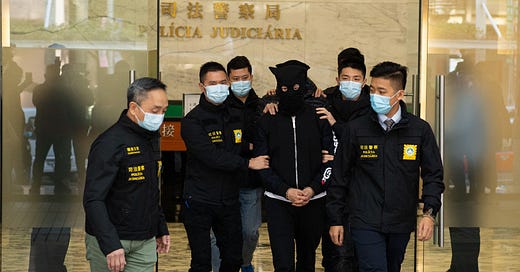Police and Thieves in the Street - Macau Casino Junkets, Crime, and Corruption
The Asian Crime Century briefing sixteen
The Macau Court of First Instance last week sentenced casino junket tycoon Levo Chan to 14 years imprisonment after being found guilty of charges relating to organised crime, illicit gaming activities, fraud, and money laundering. Mr. Chan and four other defendants were also ordered to pay a total of HK$779.7 million (US$99.36 million) in compensation t…


